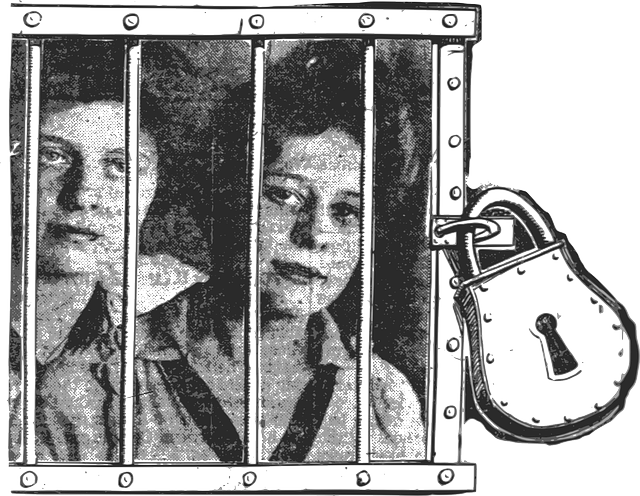Commercial Driver DUI cases face unique challenges due to strict regulations. Blood Alcohol Level (BAL) testing is mandatory and rigorous, with potential for multiple tests and alternative analysis to ensure accuracy. Court proceedings consider intoxication levels, inspection protocols, and traffic history. Lawyers specialize in navigating these complexities to protect clients' careers and secure fair outcomes within a stringent legal framework.
Facing Commercial Driver DUI charges? Understanding the unique legal landscape and navigating critical aspects like Blood Alcohol Level Testing is crucial. This article guides you through the process, exploring testing procedures and accuracy concerns. We also delve into building a strong defense strategy, helping you mitigate consequences. Learn how to navigate legal loopholes and protect your rights in this complex situation.
- Understanding Commercial Driver DUI: A Unique Legal Perspective
- Blood Alcohol Level Testing: Procedures and Accuracy Concerns for Commercial Drivers
- Building a Strong Defense Strategy: Navigating Legal Loopholes and Mitigating Consequences
Understanding Commercial Driver DUI: A Unique Legal Perspective

Commercial Driver DUI cases present a unique legal perspective due to the stringent regulations surrounding commercial vehicles and their operators. Unlike standard drivers, commercial drivers are held to even higher safety standards, which can significantly impact how their DUI cases are handled. One key difference lies in the increased emphasis on Blood Alcohol Level (BAL) testing. Commercial drivers often face more rigorous testing procedures, with breathalyzer and blood tests being mandatory, given their potential impact on public safety. This stringent approach is reflected in stiffer penalties, including license suspension or revocation, which can have severe economic consequences for these professionals.
The legal implications extend beyond the testing methods. Court proceedings consider not only the driver’s intoxication level but also their adherence to pre-trip and post-trip inspection protocols, as well as any history of traffic violations. The unique circumstances surrounding commercial driving are crucial factors in shaping defense strategies. Lawyers specializing in Commercial Driver DUI defense must be adept at navigating these complexities, ensuring their clients receive fair representation within the specific legal framework governing commercial transportation.
Blood Alcohol Level Testing: Procedures and Accuracy Concerns for Commercial Drivers

Blood Alcohol Level Testing for Commercial Drivers involves strict and precise procedures to ensure accuracy. These tests are crucial in determining culpability in DUI cases involving professional drivers. The process typically starts with a breath test using devices like the Breathalyzer, which measures the driver’s blood alcohol content (BAC) by analyzing exhaled air. However, concerns about accuracy arise due to potential factors like device malfunction, improper administration, or interference from medications or respiratory conditions.
To ensure reliability, multiple tests are often administered, and drivers have the right to request additional testing methods such as blood or urine analysis. These precautions are essential given the severe consequences for commercial drivers found guilty of DUI, which can include license suspension, hefty fines, and potential loss of employment. Accurate Blood Alcohol Level Testing plays a vital role in upholding safety standards on the road and ensuring fair legal outcomes for all parties involved.
Building a Strong Defense Strategy: Navigating Legal Loopholes and Mitigating Consequences

Building a strong defense strategy for a Commercial Driver DUI (driving under the influence) case involves navigating complex legal loopholes and mitigating severe consequences. One crucial step is challenging the accuracy and reliability of Blood Alcohol Level (BAL) testing methods used by law enforcement. These tests, while commonly employed, are not infallible and can be subject to human error or technological flaws. A skilled defense attorney can question the procedures followed during testing, the calibration of equipment, and the expertise of personnel involved, potentially undermining the prosecution’s case.
Additionally, focusing on mitigating consequences is essential. Commercial drivers face unique challenges, including strict regulations that could result in severe penalties upon conviction. An effective defense strategy may include negotiating plea bargains, presenting character witnesses to showcase the defendant’s reliability as a professional driver, and exploring alternatives to jail time or license suspension. By employing these tactics, legal counsel can help protect their client’s career and ensure a more favorable outcome.
Understanding Commercial Driver DUI involves navigating unique legal perspectives and strict regulations. Accurate Blood Alcohol Level Testing is crucial for ensuring fairness, but concerns about procedure and accuracy demand careful consideration. By building a robust defense strategy that leverages legal loopholes and mitigates consequences, commercial drivers can protect their rights and careers. Remember that each case is distinct, so consulting with an experienced attorney is essential to achieve the best outcome.






